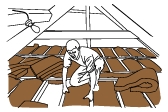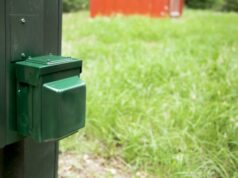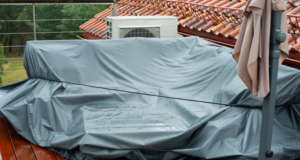
The ability of sheep’s wool insulation to provide effective soundproofing comes down to how thick it is. Find out more about how sheep’s wool insulation can be used for soundproofing.

What is natural wool?
Wool insulation is made nearly entirely from sheep’s wool, the fibres of which are either mechanically bonded together or bonded with a polyester adhesive. Wool batts are very environmentally friendly to manufacture, and are both sustainably produced and biodegradable. Having said that though, the polyester used to bond some types of natural wool batts together can counteract the positive environmental benefits.
How does natural wool insulation work?
Wool is designed to keep sheep warm, and does just as good a job for them as it’ll do for your home. Wool fibres are naturally crimped, which traps the air into lots of tiny pockets. Air is an excellent insulator, as it doesn’t conduct heat well. Wool itself is also a poor conductor, which gives it a slight advantage over mineral and glass wool batts. The crimping in the fibres also helps the natural wool batt retain its shape and stability over time, instead of breaking down and compressing or flattening like other materials do.
How well does natural wool insulation work?
Wool insulation generally has a slightly higher R value rating than glasswool or rockwool batts of similar thicknesses. Wool has been used as a heat insulator since sheep were invented, and is one of the most effective natural insulators around. It also retains its R-value over a longer period of time than fibreglass or rock wool batts.
How much soundproofing does natural wool provide?
Wool is a good sound insulator, though its effectiveness is directly related to its thickness. Rw value ratings of around 40 are common for average thicknesses (approximately 600mm) and increase to 50+ with additional thickness.
How is natural wool insulation supplied and installed?
Wool insulation is most commonly sold in batts or rolls, which can be cut to fit the space required. Unlike glass and rock wool, the fibres of wool insulation are not irritating to the touch, and not especially harmful if inhaled so gloves and dust mask are optional. The wool should be new, scoured wool and should be treated for rot/vermin protection during the scouring process.
How much does natural wool insulation cost?
While wool is a more expensive option in terms of material cost compared to glass wool or mineral wool batts, installation requires no specialist equipment since it’s safe to handle without gloves or masks. If you are willing and capable of doing it yourself, you can save money on installation costs although hiring a professional installer will ensure that it’s done properly.
Special considerations
Wool is a naturally fire retardant fibre, however the addition of polyester bonding agents to the mix will increase flammability. If you are looking for a 100% pure wool batt, look for the Wool Mark logo on the packaging.





